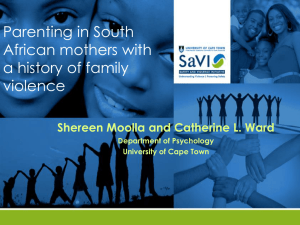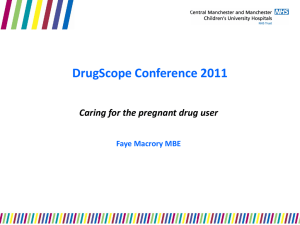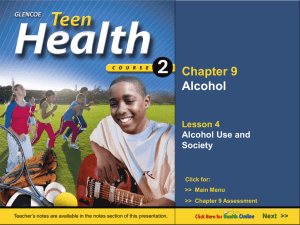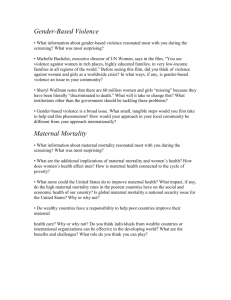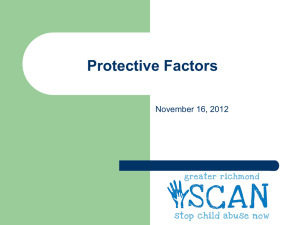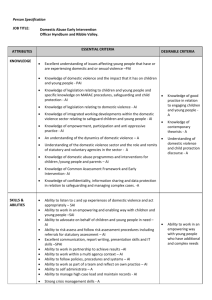ABSTRACT OF THE DISSERTATION
advertisement
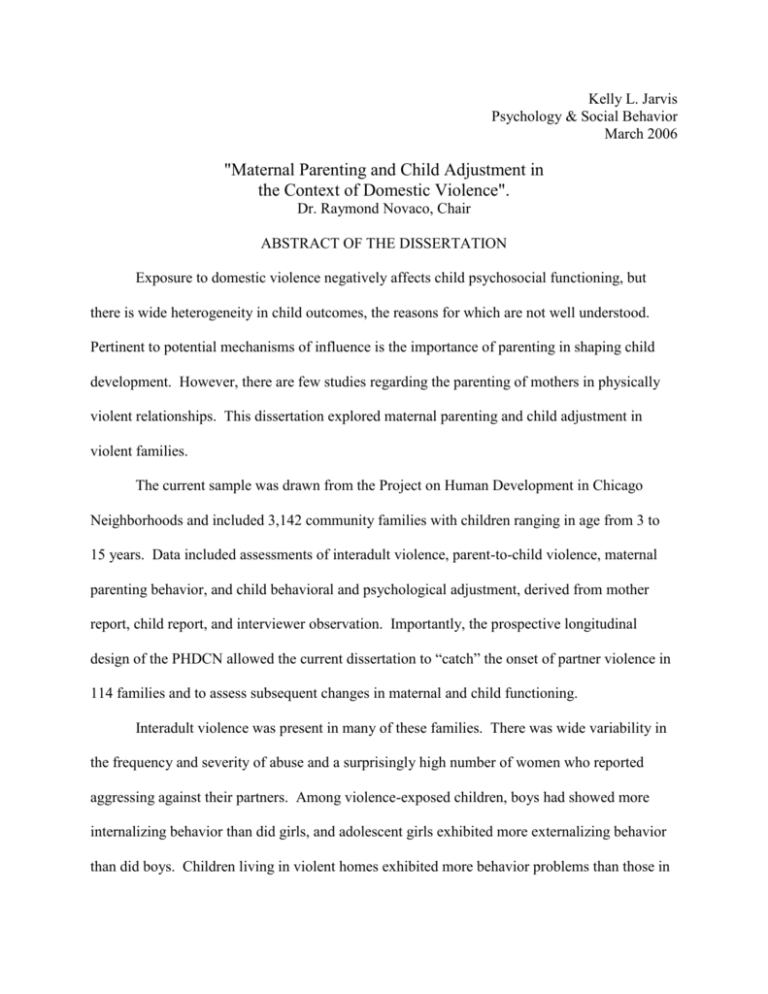
Kelly L. Jarvis Psychology & Social Behavior March 2006 "Maternal Parenting and Child Adjustment in the Context of Domestic Violence". Dr. Raymond Novaco, Chair ABSTRACT OF THE DISSERTATION Exposure to domestic violence negatively affects child psychosocial functioning, but there is wide heterogeneity in child outcomes, the reasons for which are not well understood. Pertinent to potential mechanisms of influence is the importance of parenting in shaping child development. However, there are few studies regarding the parenting of mothers in physically violent relationships. This dissertation explored maternal parenting and child adjustment in violent families. The current sample was drawn from the Project on Human Development in Chicago Neighborhoods and included 3,142 community families with children ranging in age from 3 to 15 years. Data included assessments of interadult violence, parent-to-child violence, maternal parenting behavior, and child behavioral and psychological adjustment, derived from mother report, child report, and interviewer observation. Importantly, the prospective longitudinal design of the PHDCN allowed the current dissertation to “catch” the onset of partner violence in 114 families and to assess subsequent changes in maternal and child functioning. Interadult violence was present in many of these families. There was wide variability in the frequency and severity of abuse and a surprisingly high number of women who reported aggressing against their partners. Among violence-exposed children, boys had showed more internalizing behavior than did girls, and adolescent girls exhibited more externalizing behavior than did boys. Children living in violent homes exhibited more behavior problems than those in non-violent families, and a dose-response relationship was found between the amount of adult violence in the home and the degree of child maladjustment. Children continually exposed to interadult abuse exhibited more adjustment difficulties than other children. Those who were both exposed to adult abuse and targeted by parent-to-child violence fared worse than others who were solely exposed or assaulted. Mothers in physically violent relationships were, overall, more coercive toward their children than were mothers in non-violent relationships, but there was substantial variation in the parenting behavior among these women. Both compensatory and impaired parenting, as defined by mothers’ levels of warmth and coercion, were observed among these mothers, indicating that partner violence does not uniformly affect maternal parenting. The onset of interadult abuse was associated with an increase in child internalizing behavior, but no change was found for externalizing behavior. Mothers who experienced the onset of partner violence varied in their subsequent warmth and coercion, and this variability was partially explained by whether the mother was the perpetrator or victim of the abuse. Maternal coercion had an independent, positive association with child maladjustment. However, maternal warmth was found to moderate the association between interadult violence and child adjustment, though its buffering effect depended on who perpetrated the adult abuse. Warmth was found to be particularly influential for the adjustment of younger children in violent homes. Findings highlight the importance of maternal parenting with regard to child adjustment to domestic violent exposure. Implications for future work are discussed.
